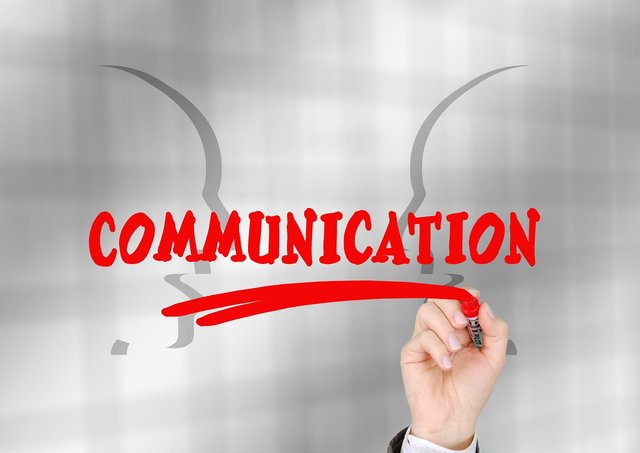Using Communication As A Tactical DE-Escalation Tool

Communication is important for a number of reasons. Using wrong words can get us fired, sued, attacked, it can end relationships, and it contribute to tremendous conflict. Knowing how to effectively communicate is a skill, and it's a good one to have.
Practices like nonviolent communication and verbal judo can be used to achieve this goal. And they are practices which thousands of people around the world try to regularly employ. The truth is that bad tempered people are weak, and knowing how to use your words as a tool is not only going to benefit the individual, but it also shows maturity in their ability to control themselves in the face of conflict. When we get angry, we lose a significant amount of our cognitive ability and we are no longer able to calmly reason and therefore it really is fruitless to get into arguments with an angry person.

When someone chooses to verbally assault you and you in-turn decide to get upset, you have lost power because you allowed yourself to get sucked in by the dynamics of the other person. Believe it or not, the ability to stay calm while in a stressful situation is a skill that can be improved upon and it's one that is taught around the world as far as using communication to DE-escalate tense conflicts and situations.
Using tactical language allows you to deflect an attack and move into a different direction, with the ultimate goal of calming people down, gaining compliance, or gaining cooperation etc. Great examples of tactical language to employ when you want to let the other person know that you are understanding/caring about what they have to say is to use phrases like: “I might feel that way too,” “I hear you” and “I understand you” are common ones.
Professional, and non-combative language is absolutely an effective tool and it can be used in a number of scenarios. Whether you are dealing with your children, your spouse, a customer, your boss, or you just happen to come across a fight that's about to break out, knowing how to de-escalate a situation and communicate effectively is only going to benefit you in the long run.

When it comes to things like condescension and attitude, most of that rests in the delivery rather than the words that are being used specifically. For example, depending on your tone you could say God Bless in a nice way or in a very condescending and rude way. Tone is important, tone makes a difference. If you are going to try and employ professional language then you will want to watch the tone, as well as try to avoid the use of insults and put-downs, because insults build ground for them to stand on; it strengthens resistance.
The Issue Comes First
When communicating effectively it's also important to leave your ego out of it. Make the issue itself central, leave yourself and your own bias out of it and focus on what is at hand. When ego is involved (fueling anger) it can greatly decrease your power position and your personal safety. So if you want to try DE-escalating a situation with others then try to leave the ego out of it.
Empathy Absorbs Tension
One of the most effective tools used to try and DE-escalate a tense situation is empathy, because it gives the person a sense that you really are trying to understand their concerns and where they are coming from. One way to show empathy is to use paraphrasing in order to let them know that you heard them and you are searching for the meaning in what they said. "Let me see if I heard what you're saying" is a good example to use.
What you want to try and stay away from saying are common phrases like “calm down,” “you never” or “you always,” is most often going to only make matters worse and push the conversation into the wrong direction.
People just want to be heard and powerful/thoughtful language is tactical language that can be used to achieve a number of different goals. Natural language (often not thoughtful) is going to frequently get us into trouble and even fuel conflict from the start, but tactical language seeks to establish peace with others.
So good, especially about confronting the issue and getting emotions out of it!
This post has been ranked within the top 25 most undervalued posts in the first half of Feb 11. We estimate that this post is undervalued by $5.05 as compared to a scenario in which every voter had an equal say.
See the full rankings and details in The Daily Tribune: Feb 11 - Part I. You can also read about some of our methodology, data analysis and technical details in our initial post.
If you are the author and would prefer not to receive these comments, simply reply "Stop" to this comment.
We need waaaaaaaay more deescalation in this world.
Upvoted!
@shayne
Excellent post. Excellent advice. Humans are an emotional animal. All too often we let emotion lead our words, rather than our brains.
Good post!
Although you are right in all statements, it is not easy to execute at all times. Emotions may lead the wrong way; But emotions fuels also Passion; there lies a conflict. Of course, when make conversation with someone who is angry, leave ego/emotions out and calm down the person and steer the conversation in the direction you want; if however you want to convince people in situation where no anger is at play, let emotions drive your passion, so let emotions go freely.
Upvoted for sure.
Rational (ethical) egoists would likely have used different words rather than "leaving the ego out of it", but if this is as I interpreted it to suggest that we should not make the conversation a superficial power struggle "over 'who' is right, rather than 'what' is right", then I certainly agree with that.
Overall I think this was a great post. =)